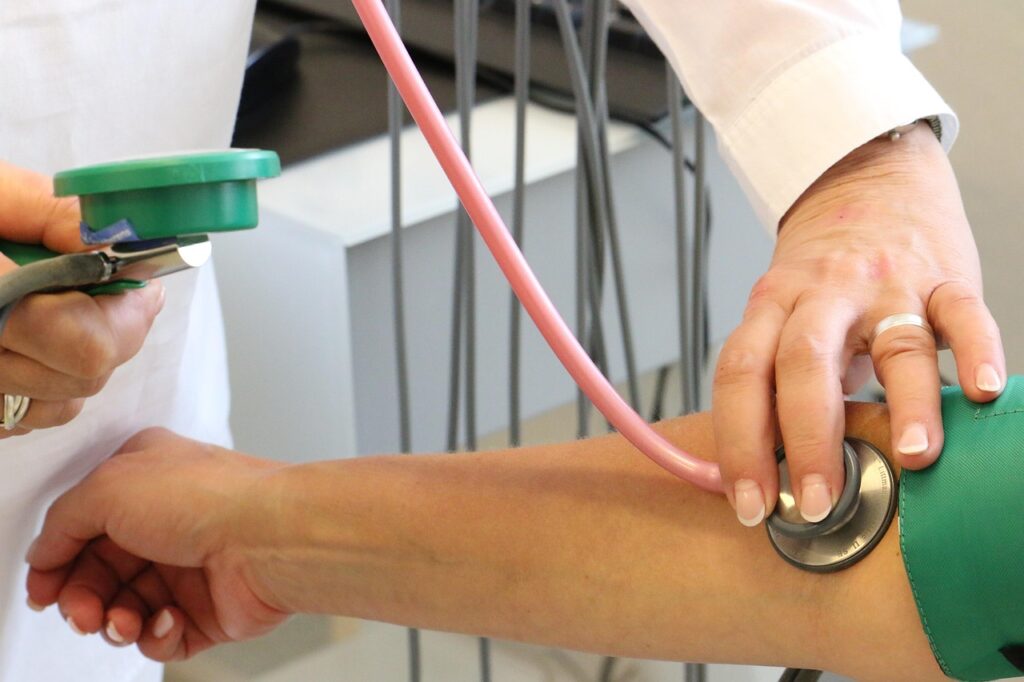Struggling with cocaine dependency? We’re here to Help you
Cocaine Addiction Treatment
Cocaine addiction can take hold quickly and wreak havoc on your health, relationships, and future. At Quadrant Health, we offer personalized treatment for individuals struggling with cocaine use. With a full continuum of care and experienced clinicians, we help you safely detox, heal, and build a path to long-term recovery.
At Quadrant, we guide individuals toward lasting recovery from cocaine abuse. Let us help you start fresh.
When use turns into dependency, treatment is essential.
What is cocaine addiction?
Cocaine use disorder is classified as a chronic, relapsing condition marked by compulsive cocaine use despite harmful physical, emotional, and social consequences. Cocaine is a powerful stimulant drug that disrupts normal brain communication by significantly increasing dopamine levels, a neurotransmitter linked to pleasure, motivation, and reward. This leads to intense euphoria but also drives the cycle of addiction, as the brain gradually reduces its natural dopamine production in response.
Cocaine can be consumed in several ways, including snorting (most common), smoking (in the form of crack cocaine), injecting (when dissolved), or rubbing onto the gums. Each method delivers a rapid, intense high, but also comes with unique health risks. Smoking or injecting cocaine leads to a faster and more intense effect, but increases the risk of addiction and overdose. Snorting may cause nasal damage over time, while injecting raises the risk of infections and bloodborne diseases.
Cocaine is often referred to by street names such as coke, blow, snow, crack, rock, or powder. Crack cocaine (named for the cracking sound it makes when smoked) is a freebase form that is especially addictive due to its rapid and powerful effects.
Repeated cocaine use can result in binge patterns where individuals consume large quantities in short periods, increasing the likelihood of overdose, heart attack, stroke, and severe mental health deterioration such as anxiety, paranoia, or psychosis. Without treatment, this cycle becomes harder to break. Professional intervention is essential to help individuals safely detox, stabilize brain chemistry, and begin addressing co-occurring emotional, behavioral, or psychiatric challenges that fuel substance use.

Are there any warning signs of cocaine addiction?
Cocaine addiction often develops gradually, but its behavioral and physical signs become more obvious over time. Chronic users may experience fluctuations in mood, intense energy followed by fatigue, and a growing inability to manage work, relationships, or finances. Common signs include:
- Frequent nosebleeds or sniffing
- Irritability, anxiety, or mood swings
- Risky or impulsive behavior
- Intense energy followed by crashes
- Neglecting responsibilities
- Cravings or failed attempts to stop
If any of these apply, call us today for a confidential assessment.
Who is most vulnerable? Exploring the underlying causes of dependency
Cocaine addiction risk is influenced by a combination of genetic, environmental, and psychological variables. Individuals with a family history of substance abuse, exposure to high-stress environments, or co-occurring mental health disorders are more likely to develop dependency. The risk also increases with the frequency and duration of use, dosage levels, and whether the person is using other substances concurrently.
Understanding these underlying contributors is key to prevention and the development of personalized treatment strategies.
Recovering from Cocaine addiction Is Possible
Hear from our alumni who’ve overcome cocaine addiction and rebuilt their lives. Our network of accredited facilities provides hope, healing, and lifelong support.
the dangers of cocaine Addiction
The full impact on your life
Health & social risks
Cocaine addiction has widespread consequences that go beyond the physical toll. Prolonged use can lead to serious cardiovascular issues including heart attack, stroke, and arrhythmias, as well as neurological problems such as seizures and cognitive decline. At the same time, addiction often results in emotional instability, relationship breakdowns, financial hardship, and legal complications. These consequences reinforce the cycle of use, making early intervention critical.


Cocaine Overdose, what do do
Cocaine overdose can occur suddenly and without warning, even in seasoned users. As a powerful stimulant, cocaine sharply increases heart rate, blood pressure, and body temperature, putting extreme strain on the cardiovascular and nervous systems. Overdoses are especially dangerous when cocaine is combined with other substances such as alcohol, opioids, or synthetic stimulants. High doses can lead to heart attack, stroke, seizures, or respiratory failure in a matter of minutes. Recognizing the early signs of overdose is critical for survival.
Warning signs may include:
- Chest pain, rapid heartbeat, or intense pressure in the chest
- Irregular breathing or difficulty breathing
- Seizures, tremors, or muscle rigidity
- Extreme agitation, confusion, or paranoia
- Loss of consciousness or unresponsiveness
If you suspect a cocaine overdose, call 911 immediately. Do not leave the person alone, and try to keep them calm and in a safe position while waiting for emergency responders. Be sure to inform responders about any known drug use to help guide treatment decisions. Quick action can mean the difference between life and death.
Why you shouldn't detox by yourself
While cocaine withdrawal may not be as physically dangerous as withdrawal from depressants, it presents significant mental and emotional challenges. The sudden drop in dopamine levels can cause deep depression, suicidal thoughts, insomnia, and agitation. These symptoms are often severe enough to trigger relapse if not properly managed. Additionally, the intensity and duration of withdrawal symptoms vary depending on how long and how much a person has used. Medically supervised detox provides the structure, safety, and therapeutic support needed to begin recovery without unnecessary risk.
Cocaine withdrawal symptoms: What to expect
Cocaine withdrawal symptoms typically fall into three categories:
- Mild symptoms: Within the first 24–48 hours, users may feel fatigued, experience increased appetite, and have trouble concentrating.
- Moderate symptoms: Over the next few days, agitation, vivid dreams, and irritability often intensify.
- Severe symptoms: In the following week or more, some individuals experience strong cravings, depression, and suicidal thoughts.
Some of these symptoms can become overwhelming quickly. This is why medical supervision during detox is essential.
The phases of cocaine withdrawal:
Cocaine withdrawal occurs in stages, and the timeline can vary depending on factors like duration of use, dosage, and co-occurring substance use:
Crash phase
Appears within a few hours to 1–2 days, and is marked by exhaustion, anxiety, and overwhelming cravings.
Withdrawal phase
Occurs typically on days 2–7 and includes mood swings, depression, and sleep disturbances.
Extinction phase
Sets weeks to months after, which is when persistent cravings and emotional lows may still surface as the brain readjusts.
Trust quadrant health to detox from cocaine safely
Our medical detox programs are designed to keep you safe and supported through every stage of cocaine withdrawal. We provide:
24/7 monitoring by clinical staff
Round-the-clock supervision ensures your safety, manages complications early, and provides peace of mind during the stages of withdrawal.
Medication-assisted treatment (MAT)
Medications may be prescribed to ease the discomfort of cocaine withdrawal and prevent dangerous symptoms. This helps stabilize the nervous system.
hydratation, nutrition and sleep support
It often disrupts sleep and appetite. We help rebalance your body with proper hydration, healthy meals, and sleep-focused care to promote healing.
Mental health and emotional support
Our licensed professionals are here to help you manage anxiety, mood swings, and psychological stress, providing stability during the process.
Treatment for Cocaine Addiction
Recovery that meets you where you are.
Quadrant Health provides a full continuum of care to address the unique challenges of cocaine addiction. Our treatment plans include evidence-based therapies, structured programming, and support at every level, including residential treatment, PHP, IOP, and VIOP. Whether you need intensive, around-the-clock care or the flexibility of outpatient recovery, we help you navigate each phase with clinical guidance and emotional support tailored to your needs.
Detoxification
Residential Inpatient
Partial Hospitalization
Intensive Outpatient
Virtual Intensive Outpatient
Dual Diagnosis
Why Quadrant health?
At Quadrant, your recovery is our priority. We combine proven clinical expertise with compassionate care to guide you through every stage of cocaine addiction treatment. Our experienced team of licensed professionals creates personalized plans that integrate evidence-based therapies, holistic modalities, and dual diagnosis support when needed. With luxury, well-equipped facilities and a supportive, judgment-free environment, we offer more than just cocaine abuse rehab. We offer a path to lasting transformation. Here, you’ll find the structure, flexibility, and care needed to rebuild your life, your way.
Explore:
Therapies we offer:
Frequently asked questions
How addictive is cocaine?
Cocaine is highly addictive due to its intense impact on the brain’s dopamine system. Even short-term use can lead to tolerance, cravings, and compulsive behaviors, making early intervention critical.
Can you overdose from cocaine use?
Yes, cocaine overdose is a medical emergency. It can cause heart attack, stroke, seizures, or sudden death, especially when combined with other substances. Always call 911 if overdose is suspected.
What’s the difference between crack and powder cocaine?
Crack cocaine is a smokable, crystallized form of cocaine that produces a faster and more intense high than powder cocaine. It also carries a higher risk of addiction and is often linked to shorter binge cycles.
How long does cocaine stay in your system?
Cocaine is typically detectable in blood for up to 2 days, in urine for 2–4 days (or longer with heavy use), and in hair for up to 90 days. Detection time varies based on metabolism, dosage, and usage frequency.
What are the long-term effects of cocaine use?
Chronic use can damage the heart, brain, and respiratory system. Long-term users often face memory loss, emotional instability, increased risk of stroke, and serious mental health disorders such as depression or anxiety.
Can therapy help with cocaine addiction?
Absolutely. Evidence-based therapies such as Cognitive Behavioral Therapy (CBT), group counseling, and trauma-focused care help individuals understand triggers, build coping skills, and prevent relapse.Detoxing at home is not recommended. Without medical supervision, you may face severe symptoms or relapse. A structured detox program ensures your safety, monitors your progress, and provides support throughout the process.
Is relapse common after treatment?
Relapse can occur, especially in the early stages of recovery. That’s why long-term support, ongoing therapy, and relapse prevention planning are essential components of our treatment model.
Is treatment covered by insurance?
Most major insurance providers offer coverage for substance abuse treatment, including detox and outpatient care. Our admissions team can verify your insurance and help you understand your benefits.
How long does treatment take?
Treatment duration varies based on the individual’s needs and severity of addiction. Programs may range from 30 days to several months and include ongoing outpatient care or support groups.
What if I have a co-occurring mental health issue?
Quadrant Health specializes in dual diagnosis treatment, offering integrated care that addresses both substance use and mental health disorders together for better outcomes.
How do I get started with treatment?
Getting help starts with a confidential assessment. Call our admissions team today to discuss your symptoms, verify insurance, and find the right level of care for your recovery.

